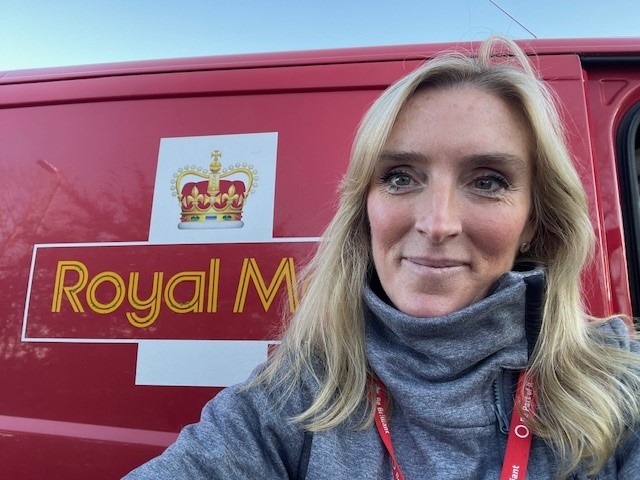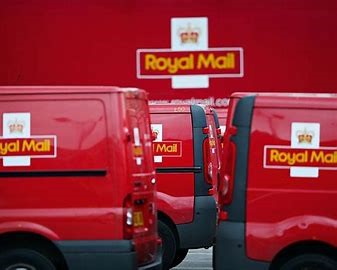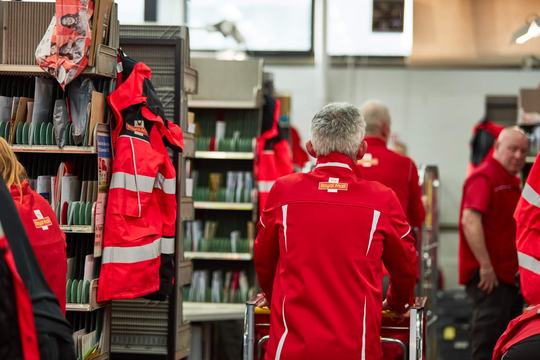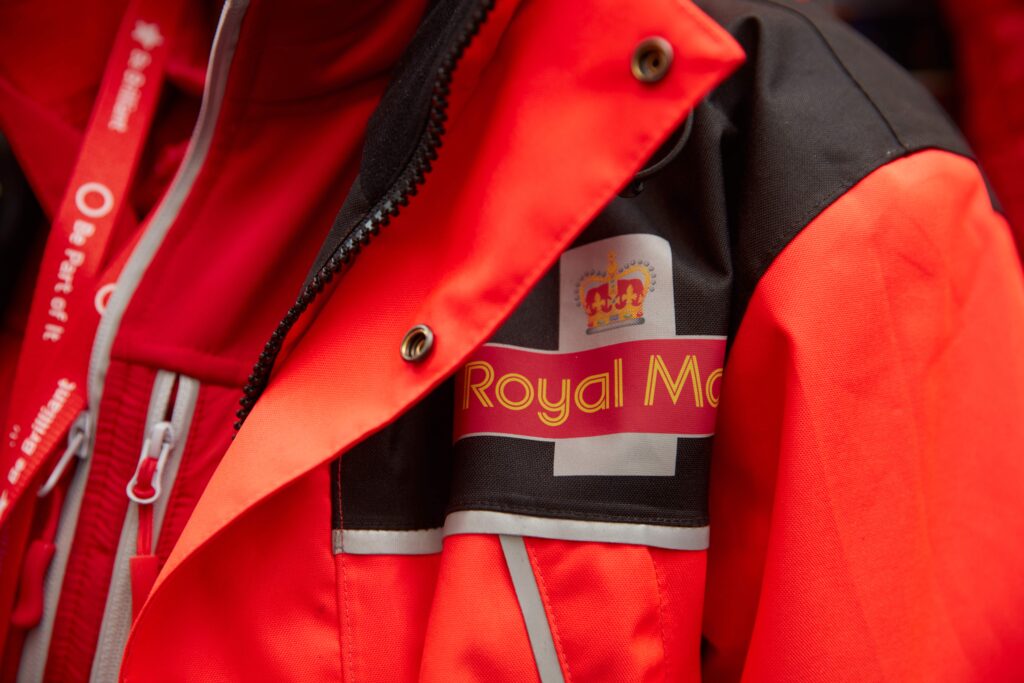A senior procurement and supply chain executive with more than 25 years of experience, Rebecca Simpson, falls into the inspirational leader category having notched an impressive track record of transformation and delivery across multiple sectors and geographies. Having joined the UK’s renowned Royal Mail Group as Chief Procurement Officer in February 2023 she has been tasked with reforming the procurement function into a ‘best in class’ function.
Certainly not a one-size-fits-all situation, Rebecca offers insight into the ambitions and opportunity for procurement that exists within Royal Mail.
Hi Rebecca, you are Royal Mail’s first CPO in some time. What attracted you to the role?
Partly just that! I have always been attracted to greenfield roles where you often have more opportunity to shape and make an impact quickly. I have a fairly unique style, value autonomy, and always work at pace so the ability to define the role and function is important to me. The fact that it was Royal Mail and undergoing such a significant transformation was also a major pull. It is such an iconic brand with an incredible history, however, has had challenging times and to be part of what will be the largest transformation of a FTSE250 company in recent times is truly energising. The execs were clear that they were looking for a lot from the procurement and supply chain team to be able to set itself for success, and that is just the sort of challenge I have always been attracted to.
Your CV is littered with roles at large and often complex organisations, with a common denominator – they all in their own way needed to reshape their procurement focus. As already stated, the scope represents both a significant opportunity and challenge. What was the remit from day one, especially given the existing structure you inherited?
I have always been drawn to complex challenges – the more the better, and hopefully have never moved on until the change has been implemented and impact has been felt. If I am honest, I don’t think the exec board were 100% clear in terms of remit, but they understood the value that could be driven through procurement and were keen for it to be explored. So, it is great that they had that vision and the role received strong backing. As you say, the business had been without a CPO for some time so I found a team with a lot of good individuals with strong professional experience, but they had lost their way somewhat and become siloed to a certain extent without strong leadership and guidance. They had lost their ‘voice’ and become transactional in nature but with good systems and processes, so there was still plenty to build from. It was a reminder for me of how quickly even previously high-performing functions can lose their way without effective leadership, motivation and strong governance. I have no doubt COVID and remote working probably also had an impact and led to levels of disenchantment within the team.

You are highly experienced and familiar with these types of scenarios. While most procurement professionals often refer to the first 100 days as being key for them to assess, you had a slightly different approach. Can you tell us more?
As you build experience through a range of scenarios (I have been fortunate to have been involved in significant acquisitions / integrations / operating model transformations and so on), I think it does help you to make quick decisions and trust your instinct as to the direction to take. I actually started with the ambition to observe and listen before setting a strategy, however it was apparent early on the pace of change that was needed and what needed to be done. I quickly made an assessment in week one around the level of maturity across core areas – category management, processes, technology, people, SRM etc. Through understanding the financials and with engagement of stakeholders, I got clear sight of how we could make the most impact. I am pleased to say that a few months in, that assessment has not changed, and the direction set is delivering tangible results. For me it was important to set a clear vision early on – one that empowered the team so that we could start to make small changes almost instantly.
You’ve inherited a good tech stack and the core of a team that is experienced, together with a relatively new board and CFO who are all energised to transform the business. How much importance is placed on procurement at present? How important to you is it to have a CFO and board that champions procurement’s role in this transformation?
It is paramount for me and the impact that this can have cannot be underestimated. Knowing I have this is a game changer in terms of what the function can deliver and most importantly the speed we can do it. It is certainly much easier if you feel you are swimming with the tide rather than against it. I would say a great deal of focus is placed on procurement as part of the broader transformation as we cut across all transformation initiatives, plus our ability to influence key enablers and of course our supply chain. I have agreed stretch targets across key pillars including cost, cash and carbon, and these need to be delivered.
What challenges does the previously siloed nature of procurement create in terms of visibility?
It was definitely a key area for me to address as an initial priority. For me procurement is at its best when we are recognised as a true business partner We stand shoulder to shoulder with our operational counterparts ensuring excellent execution whilst also working with the exec and functional heads to shape and deliver strategy. We can only do this through strong stakeholder relationships and credible delivery. The team had become subservient with business making decisions and seeing procurement as an admin function to support this. Lacking objectives that supported broader business strategy and lack of visibility of any tangible results helped to cultivate a function that was not empowered or performing. I am pleased to say we have already come along way – much of my initial focus was on building those stakeholder relationships and explaining the role procurement could play to help deliver real results and fundamentally improve the business. Some early successes has then built momentum.

Typically, the best way to gain visibility, especially during a procurement transformation, is to deliver some ‘quick wins’. You have only been in the business a short while but what would you point to as the most significant wins so far?
Yes, I agree, for me transformation typically is successful when it is a series of small wins and incremental improvements rather than a ‘big bang’ approach, which can often be costly and either not materialise or not succeed to the extent needed. It starts with a vision that the team can get behind. We have this now and I try my best to embody this and encourage a culture of success, taking on challenges and not being afraid to be bold. The team recognises we now have leadership and the support of execs with clear objectives that they can get behind which will deliver success for the business, but also help stretch and develop them as professionals. We have board level visibility and I report into our EB weekly. I identified that given the financial context RM is operating in, we could best support by delivering on an improved cash position, sustainably reduced cost base and improved carbon performance. And we now have clear deliverables against these and stretch targets to deliver more.
ESG is front and center of the long-term ambitions of the business. Procurement will play a huge role in driving initiatives to ensure targets are not just met but surpassed. Scope 3 emissions are under focus. What is your approach to embedding the sustainability angle into your supplier relationships? How important are strategic relationships in the supply chain in driving innovation? And do you feel there is work to be done if Royal Mail is to be in a position where it can truly collaborate and source real value from the supply chain?
Absolutely. Currently, RM is the lowest carbon delivery provider, and we must stay that way, which means smashing our net zero targets and staying ahead of the competition. This is a real differentiator for the business and customers are increasingly seeing ESG performance as a key selection criteria. We must ensure this is reflected across our value chain. I have recently had our scope 3 plan approved by the board and am building a new team entirely focused on just that. This means effective supplier relationship management with a focus on decarbonisation of our supply chain whilst also driving additional mutual benefit in terms of value, innovation, risk mitigation and so on. As you can imagine, we have high carbon categories including logistics and tech so these are our initial areas of focus – our aim is to cut scope 3 emissions by 25% by 2030 so we have a lot to do.

People, processes, technology. Royal Mail is no different to any other business, with these three areas paramount to success. People, however, are often cited as the key driver in this equation. Royal Mail is without doubt a standout brand but has certainly had its share of challenges. How important to your overall ambition for procurement is it to not only take your existing employees with you and encourage them to grow, but to also recruit and retain the next generation of Rebecca Simpons?
Your team and the legacy they can create is everything. My priority was to align the structure with the business so that roles and relationships were clear – this is now done. Fortunately, due to exec backing and despite our challenges, I am recruiting for key positions. Some of which are entirely new for the business – for example, those relating to SRM and carbon reduction. I believe people want to be part of something successful and also part of something which is fun, and this is the culture I try and generate to energise existing team members and to attract new recruits. I am also using third-party consultancy support in the short-term to help both deliver quick impact, but to also coach and upskill team members. It is important to me that the team feels invested and that we celebrate successes. I hope over time, we build a team that includes more entry level roles including apprenticeships and graduates to help build a pipeline for the future. Developing individuals and seeing them go on to bigger and better things has been one of the highlights of my career.
Crystal ball time: If we look forward, what would you hope procurement has achieved and where how will the overall journey proceed from this point?
I guess that depends on timescales, but I certainly see a wealth of opportunity. I want to ensure in the next 18-24 months that procurement is a recognised business partner, and we are known as experts in our field and called upon to support and lead key third-party activity. Procurement does not need to be circumvented because the value is recognised (market knowledge, risk management etc.). We have delivered sustainable cost reduction across all cost categories in line with our stretch ambition, and we have adopted innovative commercial models and finance mechanisms that deliver value and improved working capital. Given the business challenges faced, this is fundamental. We have a robust carbon reduction plan across all key carbon categories with effective baseline measurement and plans to hit our 2030 target. The team is energised internally and externally and is known for being best in our class.

